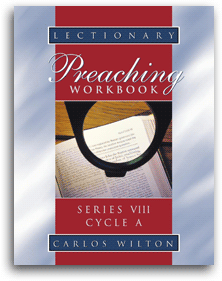SermonStudio
Proper 25 / Pentecost 23 / Ordinary Time 30
Preaching
Lectionary Preaching Workbook
Series VIII, Cycle A
Theme For The Day
Moses' blessing of the people on Mount Nebo is an example of one of the most important tasks of aging: to leave a legacy.
Old Testament Lesson
Deuteronomy 34:1-12
The Death Of Moses
Moses' blessing of the people on Mount Nebo is an example of one of the most important tasks of aging: to leave a legacy.
Old Testament Lesson
Deuteronomy 34:1-12
The Death Of Moses


